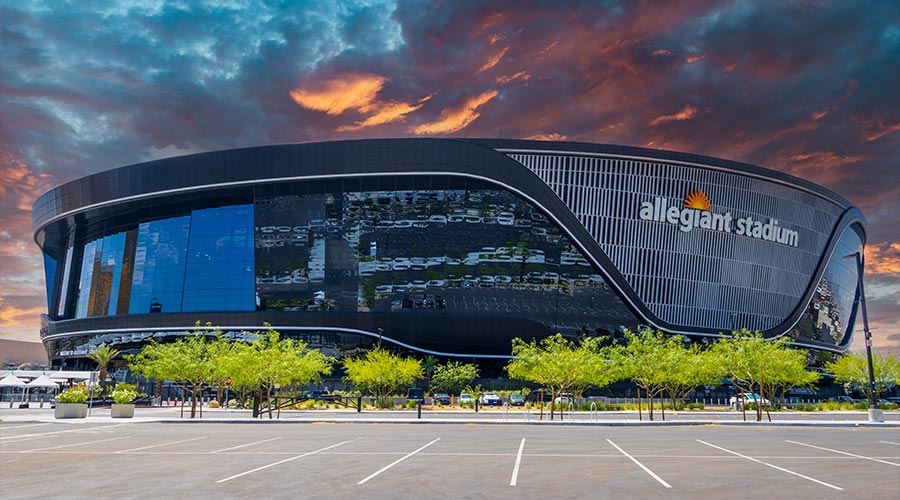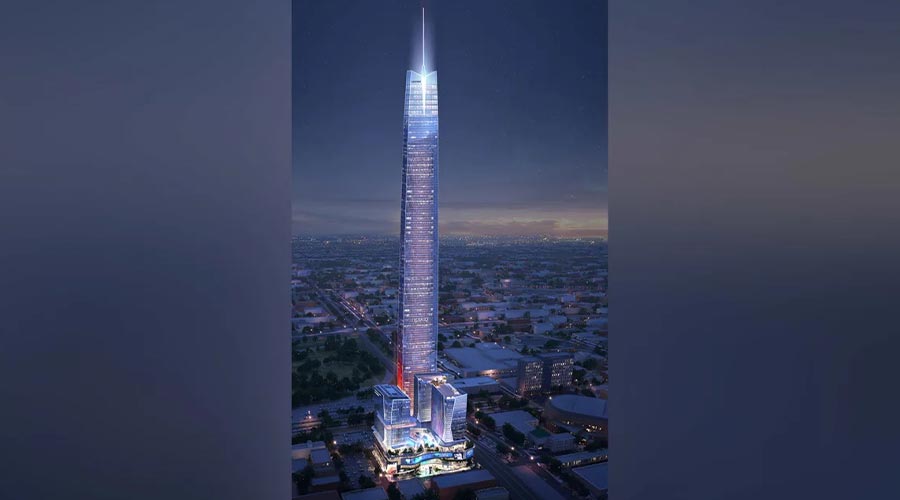
Countdown to Super Bowl Kickoff for Facilities Team
How are facilities managers, technicians and support staff at Allegiant Stadium in Las Vegas making final preparations for Super Bowl LVII? February 8, 2024
By Dan Hounsell, Senior Editor
This week, the San Francisco 49ers and Kansas City Chiefs are deeply immersed in preparations for Super Bowl LVIII, but they are not the only ones reviewing plans and conducting run-throughs.
For facility managers at Allegiant Stadium in Las Vegas, the runup to Sunday’s game is the culmination of preparations that likely began before the stadium opened in 2020.
Matt Weko, managing director of consumer goods, media and entertainment with JLL, offers his insights on the strategies and challenges of preparing to host an event like Super Bowl LVII.
FacilitiesNet: With the Super Bowl coming up in less than a week, what preparations are taking place at Allegiant Stadium in Las Vegas? What is the facilities management team thinking about right now?
Weko: This week, like every big project day, I would expect they are in their dress rehearsal, dry run mode. They should just be doing the dry runs with their vendors, with the stakeholders, with everybody who's part of the planning team. We would expect that the prep and the activities leading up to the event were probably largely completed by now.
Without trying to predict exactly what they're up to, I'd be really focused on my vendor engagement, everybody who is a vendor. I'd want to be sure that they were completely engaged, that our communications protocols were intact so we are communicating with everybody accordingly.
I also would be looking at all of my redundancies, calling my emergency response planning team and making sure that we've got backups if there's any natural disaster or unforeseen weather condition. I'd be planning for that, communicating with forecasters and defining roles and responsibilities and making sure in the dry run mode that everybody knew who was on point for what if we did encounter situation like that.
FacilitiesNet: For an event like the Super Bowl, what systems and components are they focused on?
Weko: I don't want to speculate at all, and I wouldn't want to give any indication of the physical security components. But from a facilities perspective, it's certainly important that you're monitored security, that your sensor security, that all your access control points are working. The last possible thing you would want to have is a card swipe not work, a key not work, a gate not open at a moment where you expect it to. In terms of that walk-through of the day and of the events, that certainly is going to be on the checklist from the security perspective.
FacilitiesNet: If a manager in some other type of facility is hosting a large, high-profile event, what are the facility systems or the components that are most likely to cause problems?
Weko: Anytime we're planning for a significant an event, maybe it's hosting a dignitary or a board meeting, it's important to inspect the facilities as the first step in the process and understanding exactly what you're doing, assessing conditions and identifying any of those.
Then look at those potential deferred maintenance items. You want to implement any kind of preventive maintenance across your HVAC system, across your electrical system, your plumbing system, any place where repair may have been deferred or overlooked in the past. That should be a high priority so you can begin to put your event planning on top of that.
FacilitiesNet: What strategies do you suggest for day-of troubleshooting if something goes wrong?
Weko: You need an absolute understanding of the flow and the run of the show. The walk-throughs will start to reinforce that. There's some muscle memory in terms of when and exactly how things are supposed to unfold. It’s also the attention to detail on top of that, so that any early indicator of a problem is identified and addressed as quickly as possible so a bigger issue doesn't snowball from that.
Understand exactly what is supposed to happen and when it's supposed to happen -- the attention to detail, the understanding of who's responsible for it. Then, heaven forbid, if you've got a problem, that vendor network and the network of resources to tap into for support is going to be critical.
FacilitiesNet: What other important issues should facility managers keep in mind to successfully host a large, high-profile event in their facilities?
Weko: Resource allocation is one of the biggest things to think about. Understand redundancy in your resources. In a moment of crisis, there could be any number of individual failures for any number of reasons, and it's important that other people understand their roles and how to step in and step up when the time comes.
It’s important to share the strategy with your team, engage everyone in the details, understand the roles we play so we can step in and stand in as needed if an event like that were to happen.
Dan Hounsell is senior editor for the facilities market. He has more than 30 years of experience writing about facilities maintenance, engineering and management.
Next
Read next on FacilitiesNet












